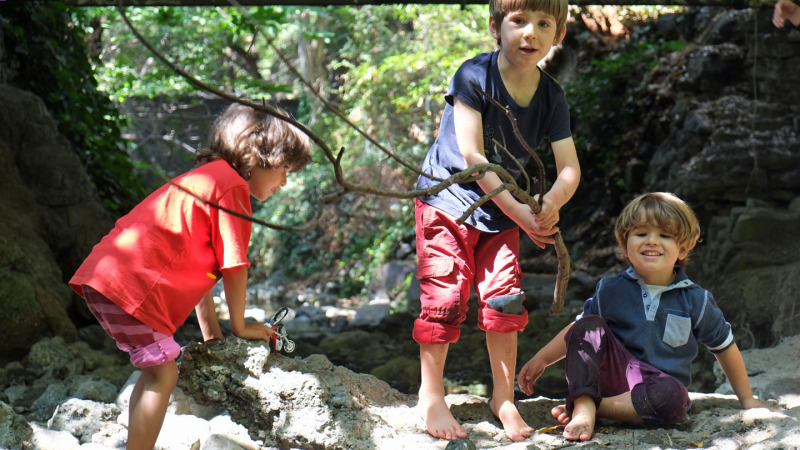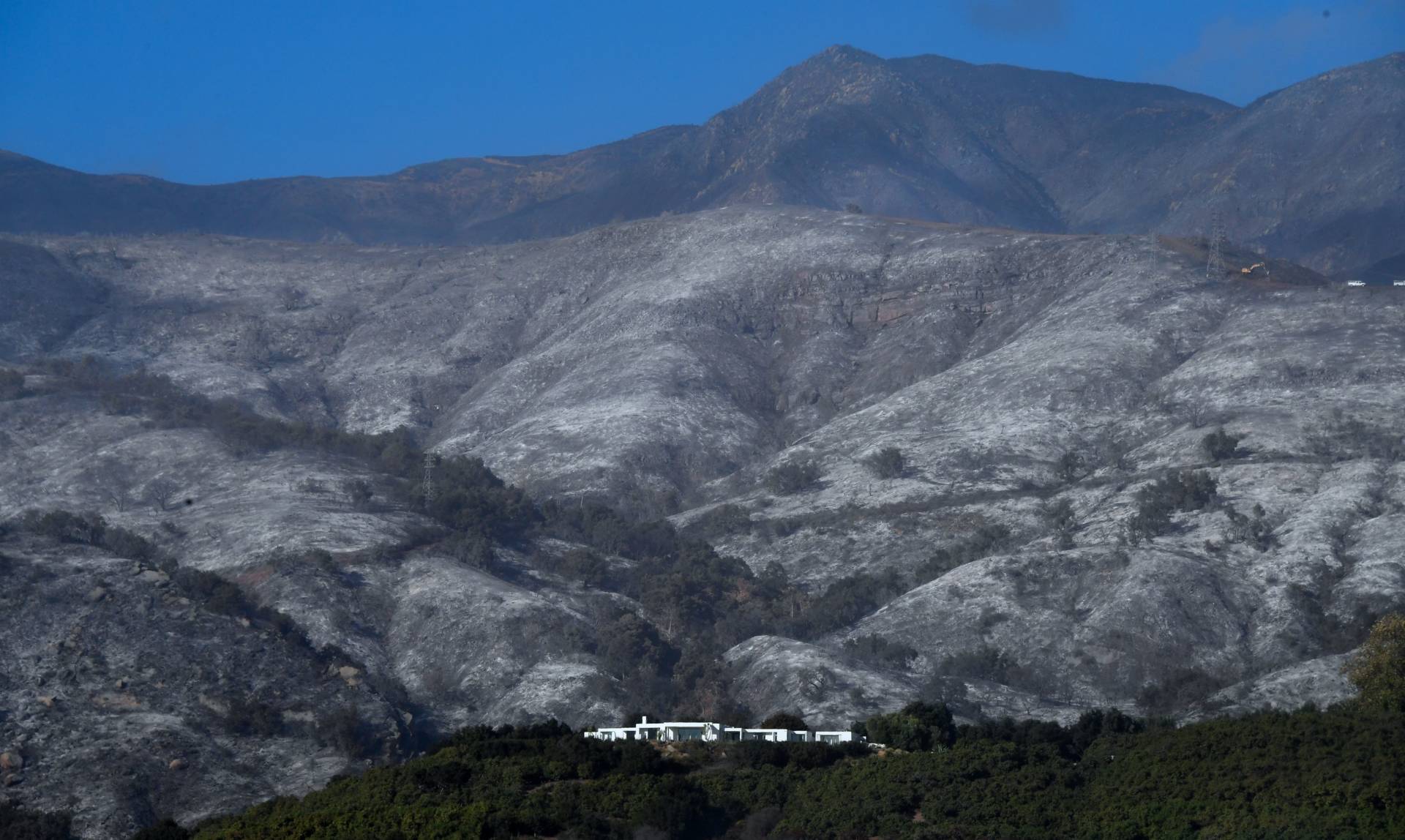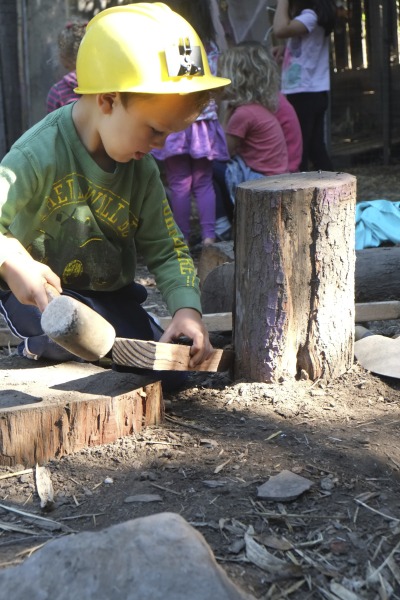For many children, even young ones, school has become more of a training ground for the tests used to measure the efficacy of their teachers and schools than a place to learn about the world. As pressure to focus on academics pushes into ever younger grades, some parents are being drawn to alternatives that they hope will help inspire their children to discover a lifelong love of learning.
Schools that use nature as the classroom, focusing on student-driven inquiry, are becoming increasingly popular. Called forest schools, these programs couldn’t be farther from traditional preschool or kindergarten. There are no rubber-padded play areas, no ABCs and no structured activities. Instead, rain or shine, teachers take the children to different natural places to explore forests, meadows, creeks and shorelines. The philosophy centers around exploring and connecting with the natural world.
Forest schools have been around for decades in Europe, where children play outside and mostly unsupervised in weather much colder and nastier than anything California can dish up. The motto of these schools is: “There’s no bad weather, only bad gear.” The forest school movement is gaining momentum in California with several new schools popping up in recent years in places like San Diego, Laguna Beach and Santa Barbara, in addition to a handful in the Bay Area, including Sebastopol.
Lia Grippo runs Wild Roots in Santa Barbara, one of the oldest forest schools in the state. She’s recently begun convening a conference of forest school educators in the summer. She says there was no need for such formality until a few years ago because she personally knew the directors of the other three or four programs. But now that there are closer to 13 programs with new ones opening every year, she and others are trying to form an Association of Forest School educators.


